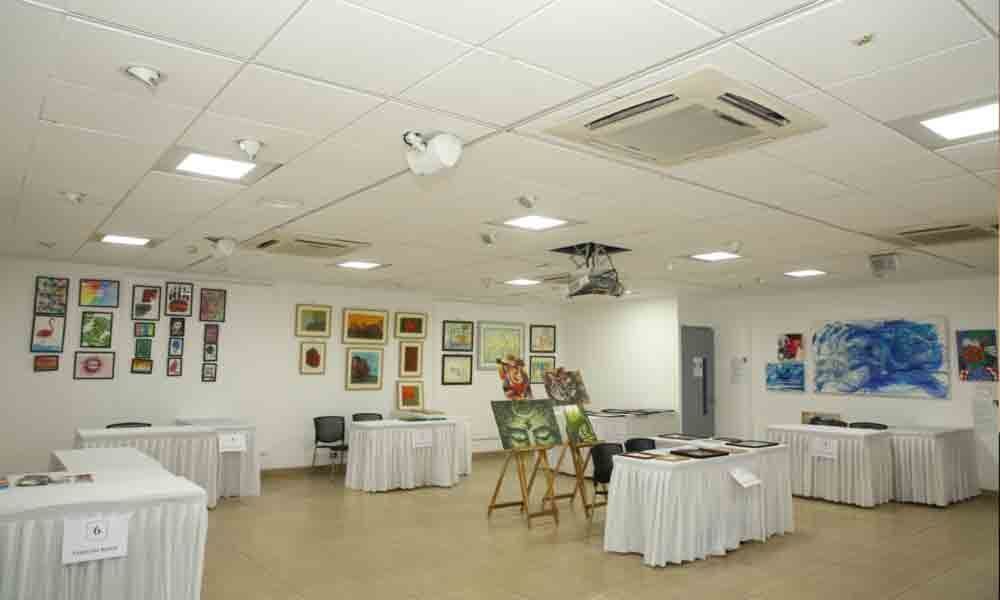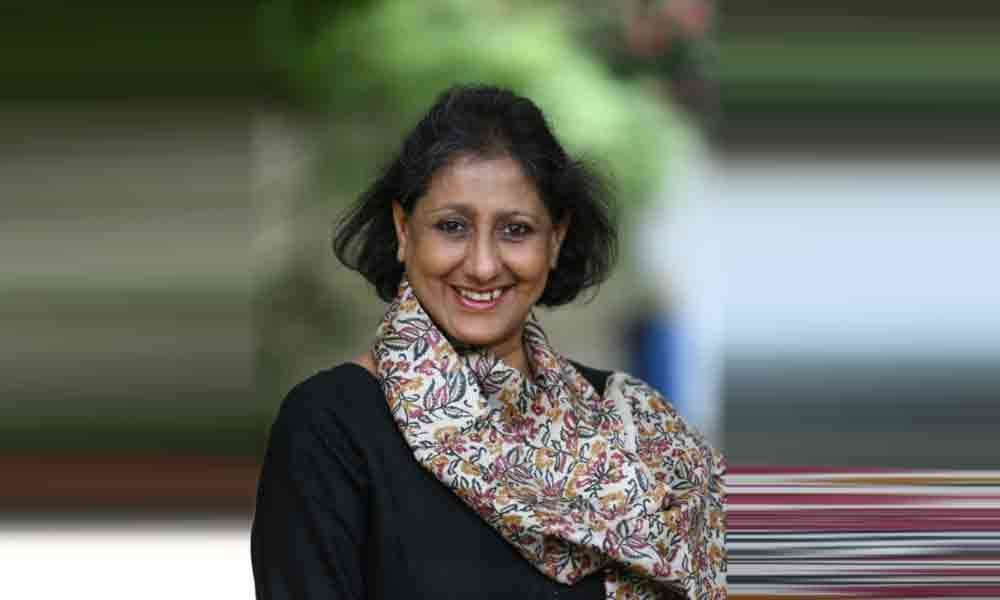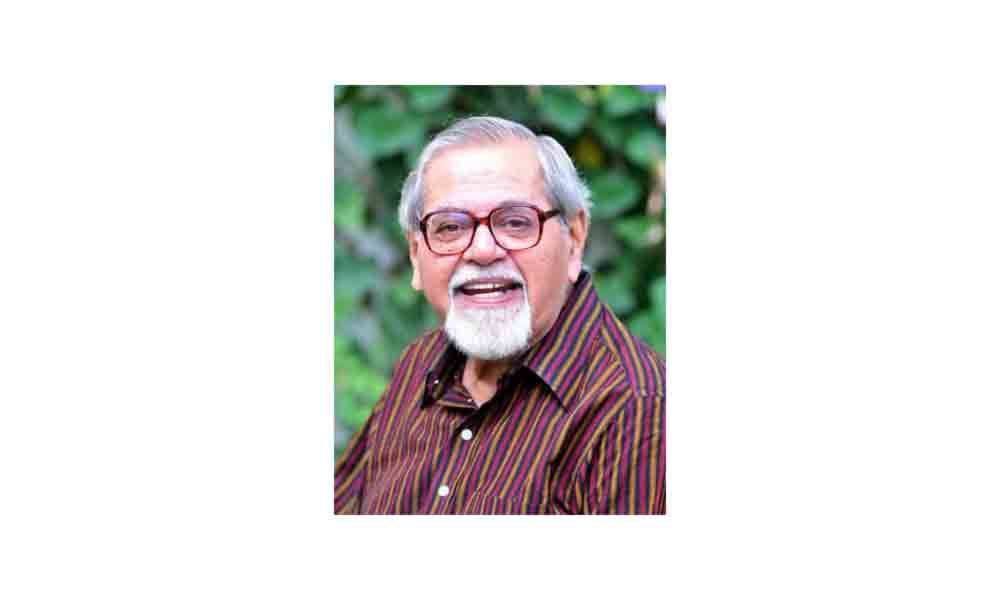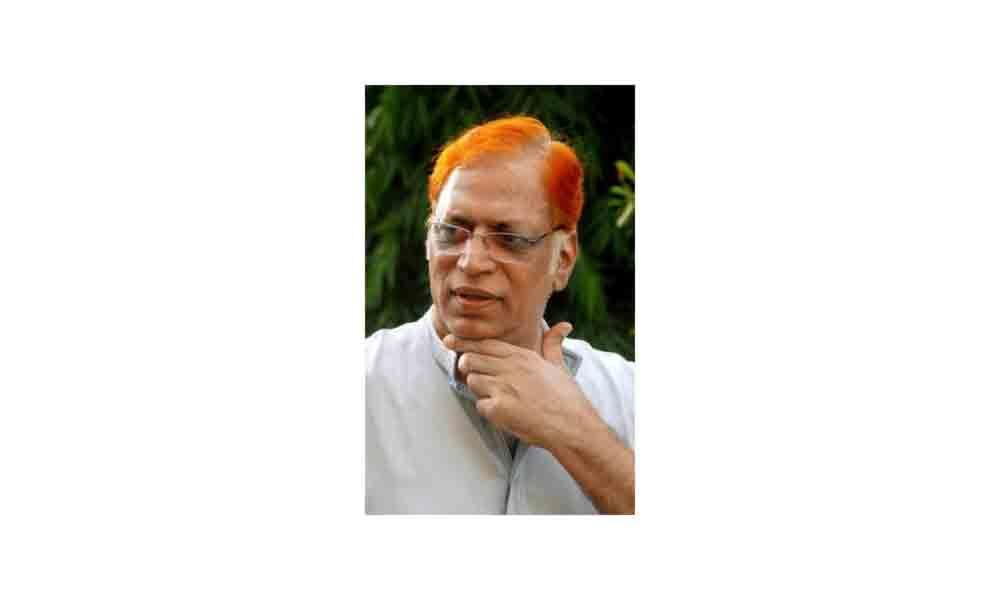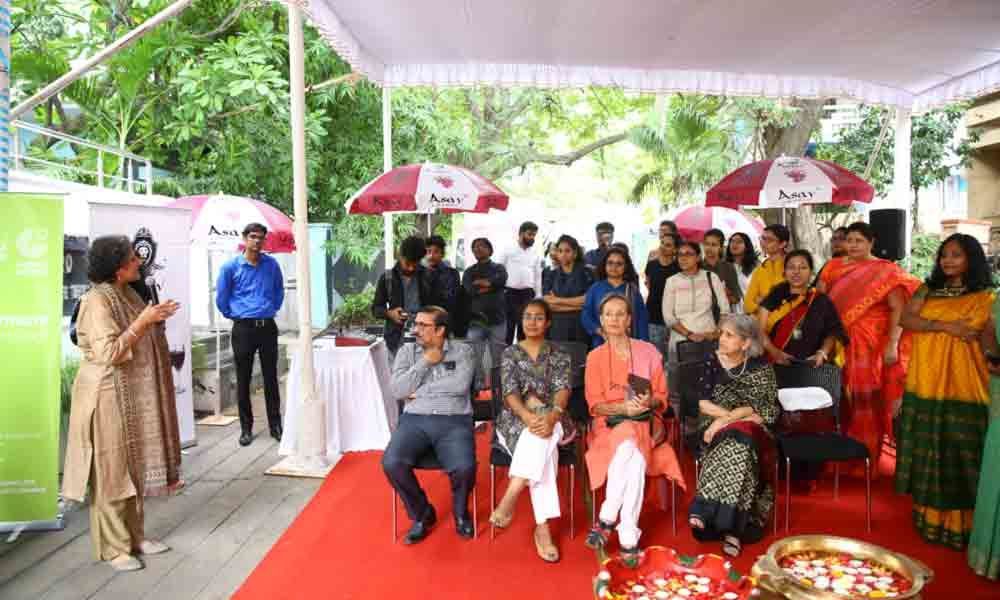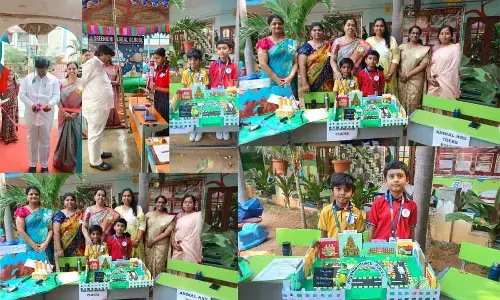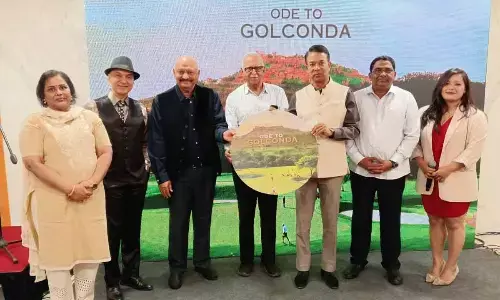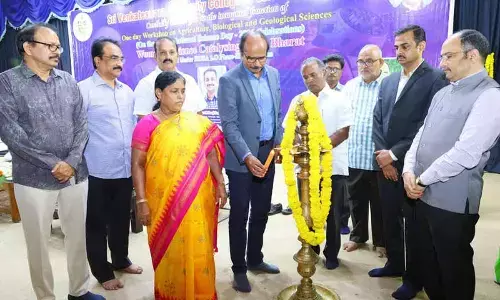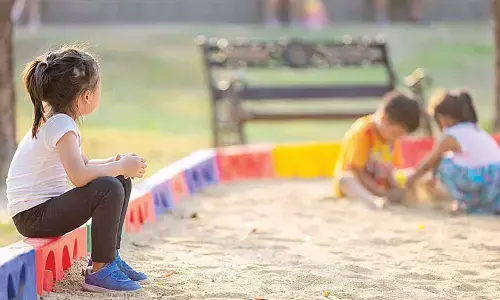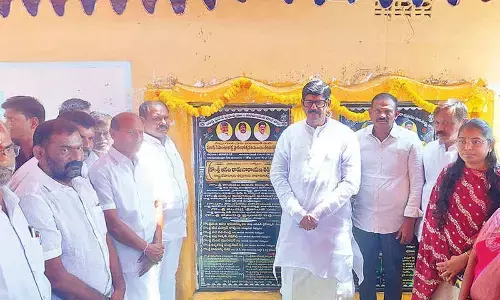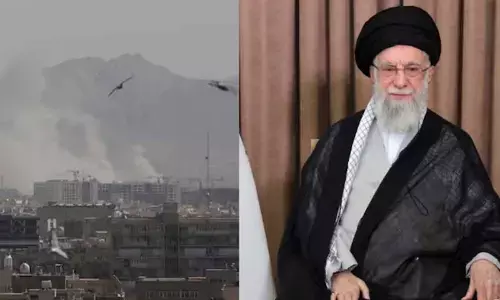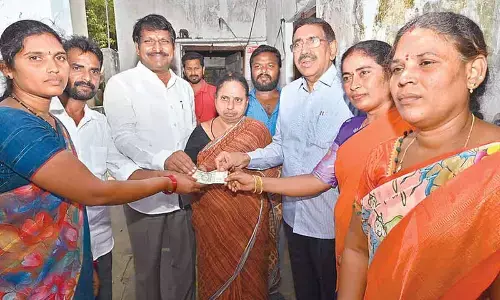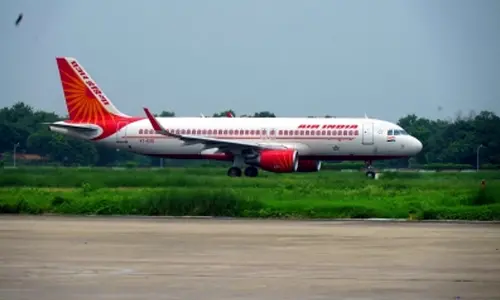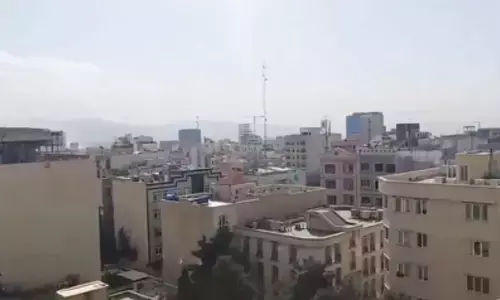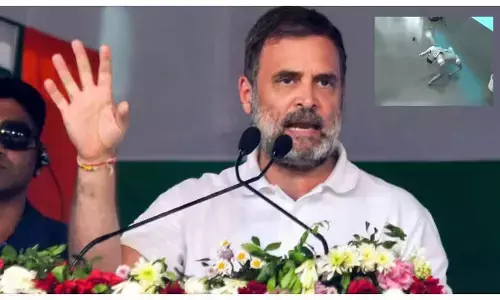It's all about German culture
The Goethe-Zentrum has been an integral part of the cultural landscape of Hyderabad ever since it opened a decade after the Max Mueller Bhavan was closed.
The Goethe-Zentrum has been an integral part of the cultural landscape of Hyderabad ever since it opened a decade after the Max Mueller Bhavan was closed. It has been offering a kaleidoscope of events and involved in a spectrum of activities contributing in its way to the city. As it celebrates 15 years of its existence, Amita Desai, Director, Goethe-Zentrum, throws light on the centre's work, popularising German language and showcasing the rich cultural diversity of Germany and India in this interview.
Excerpts from an interview:
What led to the opening of the Goethe-Zentrum in Hyderabad? It was begun a few years after the closure of Max Mueller Bhavan
Goethe-Zentrum opened about 10 years after the closure of Max Mueller Bhavan (MMB) in Hyderabad. I recall that in 2002/3 the then German President Johannes Rau had visited Hyderabad. At the official State dinner, the then CM asked for the German airline and the cultural centre. Within 12 months or so both agencies took birth in Hyderabad. I had recently shifted here from Mumbai after 10 years' service at the MMB there. I was invited to start language classes here. We did a sample course and found a huge demand. As a result, the German missions in Chennai and Delhi and the regional head office in Delhi, the Max Mueller Bhavan initiated this project and asked me to do a feasibility report as well as requested me to assist them in starting such a cultural organisation. It was in December 2004 that we opened doors in Hyderabad at the Hermitage Office Complex.
How has the response been to learn the German language?
It has been a whirlwind. With about 180 odd students we trained in 2005 we have now crossed over 1,100 students per annum at our Centre alone. Now we have over 20 schools with over 5,000 students doing German language every year. Language classes are being conducted for companies at their premises, at schools, colleges and at our centre. The demand has grown steadily, and we are happy to say we have also been able to increase faculty strength from three teachers to triple that many now. We do teacher training courses, mentor and monitor school teaching, and conduct public examinations. We are an accredited examination centre with more than 1,300 students per annum writing these public exams. We are happy that Germany is considered a destination for higher studies, for world-class research and other academic pursuits.
The Goethe-Zentrum has completed a decade and a half in Hyderabad. What are the events/programmes organised on this occasion?
Goethe-Zentrum Hyderabad will complete 15 years in December 2019. We had launched a yearlong commemoration with a jazz concert, and we will complete this with yet another scintillating concert later this year. The highlight of our celebration was KUNSTMARKT. This is a new feature launched by our centre to invite young and established artists to share their work with visitors, interact with one another, listen to live music, enjoy food and linger in the creative space that GZH was transformed into that day.
Over two dozen artists participated and more than 500 visitors came to the event spread through the day. There was bonhomie, creativity, warm coming together and general ambience of a merry mela of creativity.
How do you see the centre's role in the cultural landscape of the city?
It has been exciting to be a part of the cultural landscape of Hyderabad, from day one! The city soaked in absolutely every experience we have offered: classical concerts, contemporary composers, electronic music, children's theatre, open-air dance theatre, slam poetry, collaboration between Indian and German choreographers, Film screenings on the walls of Charminar, Old City, World Music Day, Candle March for Endometriosis, 70 member orchestra at Shilpakala Vedika, Jazz concerts, Science Mela, Women's March, Earth Day programme, that is close to 85/90 events every year for the past 15 years! The city has been kind and received all extremely well. We once had a memorable project with 16 different school children paint on 16 wooden benches, which were then placed outdoors in the Durgam Cheruvu area. We are happy that our cultural space is being seen where alternative thoughts are promoted, we bring together stakeholders from the fields of science, education, media, fine and visual arts, photography, literature, dance, music and so on. It is an amazing experience – vibrant, dynamic and truly exciting.
Numerous cultural events are being organised by the centre. How do you conceptualise them?
Well, we are facilitators – connecting via language and culture. We like to participate in city issues. Hence there are some projects we visualise and see if our partners are interested. Some are proposed to us by our regional head office and yet others that our local partners bring to us and invite our support.
Working with Shaheen, for example, is one such where we are often invited to partner. We have been collaborating with Shrishthi Art Gallery for over a decade where we jointly present young artists – this is spearheaded by the gallery. Hyderabad Literary Festival, the International Jazz Festival are platforms where we invite others to join forces with us.
Another branch has been opened at Kukatpally in Hyderabad. What necessitated this?
Indeed, we have opened classes at Kukatpally and Secunderabad. Distances are large. There is interest, and the demand is growing: Hence, we have two outreaches in the city to take the load off the streets as well as from our own classrooms. This is despite our having added three more classrooms to our present office space – that is we have seven classrooms in the main centre building complex plus the outreaches in other parts of the city.
Goethe-Zentrum is the principal partner of the Hyderabad Literary Festival? How did this association come about? What are the plans for the forthcoming HLF in January 2020?
We are happy to be the centre of HLF bureau. We joined the organising group in the second year already when Germany was invited as the guest nation. Since then we have been playing a more central, organisational role. The team was also expanded in these years and it is visible in the exponential growth of literary as well as ancillary events at the Lit fest. HLF 2020 will mark the 10th edition. We hope to see this festival 'by the city, for the citizens' continue to attract young and old, readers, writers, poets, and creative artists celebrate life and letters to its fullest. Each year we are able to add a new feature, as Kaavya Dhaara the last edition – we hope to bring in some more such in the coming edition, to be held on January 24-26, 2020.
What are the future plans?
We hope we are able to connect further with the city, civic issues, offer a platform for 'hatke' experiences and of course learn German and understand people of Germany – create spaces for further interaction and collaboration.


